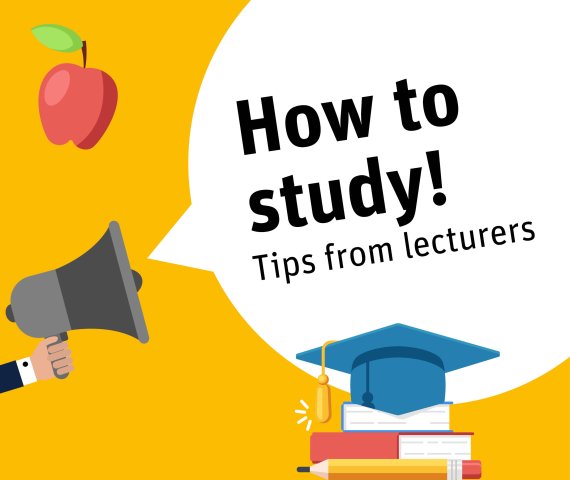text Luuk Zegers

Jessica Duncan,
assistant professorof Rural Sociology
1. Read the course guide. Maybe it’s a bit obvious, but lots of students don’t. The course guide is literally the plan for the course. It tells you what the course is about and what is expected from you. You have so much going on in addition to your studies, so the better you understand what you have to do and when you have to hand in assignments, the better you can plan things. To test who actually reads the course guide, I might put in something like: ‘If you read this sentence, send me a picture of your favourite food’. Maybe half of the students do that.
2. Use a calendar. Deadlines that seemed far off sneak up on students and all of a sudden their assignment is due. You need to make the shift to more independent learning. A calendar is key to this. Get one and use it!
3. Take the readings seriously. That means keep up with the reading, ask questions about it and try to understand why you’re reading what you’re reading. If you know why you’re reading it, you know what knowledge to focus on.
4. Ask questions, but show that you’re trying to understand. They say dumb questions don’t exist, but if the answer to your question is in the course guide, it is a dumb question. But if you don’t understand a concept or you need extra clarity, ask your teacher about it. Be sure to show them that you have tried to answer the question yourself, and explain what part you don’t understand.
5. Be curious when selecting your courses. At Wageningen you have the opportunity to try out so many different things. Do that. Get out of your comfort zone. It brings new perspectives to you as a student.
6. Transitioning to a new stage of life can be tough, so find healthy ways to deal with the stress. Find some sports that you like, eat healthily and get help if you need it. The university has support available in the form of student psychologists, study advisers, student deans, confidential advisors and more. If you feel overwhelmed, find someone to talk to, for example via the Student Service Centre. It’s the bravest thing you can do!

Hannie van der Honing,
lecturer in Cell Biology
1. There is a lot of scheduled time with teachers in Wageningen yet students still choose to skip lectures. You will have 275 students in the room on day one, 190 on day two and only half will be left on day three. It isn’t a problem if you miss the occasional lecture because you can watch it online. But I advise students to appreciate the value of contact with teachers. The lectures make clear where the focus is.
2. Prepare properly for practicals. If you know what you have to do in advance, you get a lot more out of it. If you come in wondering what you’re going to do today, you will get left behind.
3. Don’t be afraid of some delay in your studies if that lets you do something you are enthusiastic about and can learn a lot from. Students who spend a year on a committee or a board learn soft skills that will help them an awful lot when they start work.
4. Some students take their degree programme very seriously — too seriously, I sometimes think. My tip for those students is to enjoy the freedom that you have as a student because it becomes much harder once you start work.

Perry den Brok,
professor of Education and Learning Sciences
1. Study regularly. Research shows that it is often better to learn small amounts frequently than cram really hard for an exam in one go because you forget most of it afterwards. You might be able to pass your exams with some last-minute revision but hopefully you came to university to genuinely learn something. So it’s good if you haven’t then forgotten it all again one week after the exam.
2. The next tip is actually rather a bad one… but there are some books, for example Test Heroes, that explain how teachers create exams. If you know how exams are designed, you will have a better idea of what to do to pass them.
3. Think about the long term. What do you want to get out of your degree and what do you want to do later? The possibilities sometimes seem endless so it’s a good idea to figure out what direction you want to go in. For example, are you more interested in the research side or the commercial side?
4. You don’t just learn things in lectures. Try and find out more about your degree subject outside your courses. Watch films, go to talks or try out something in practice that you learned in lectures.

